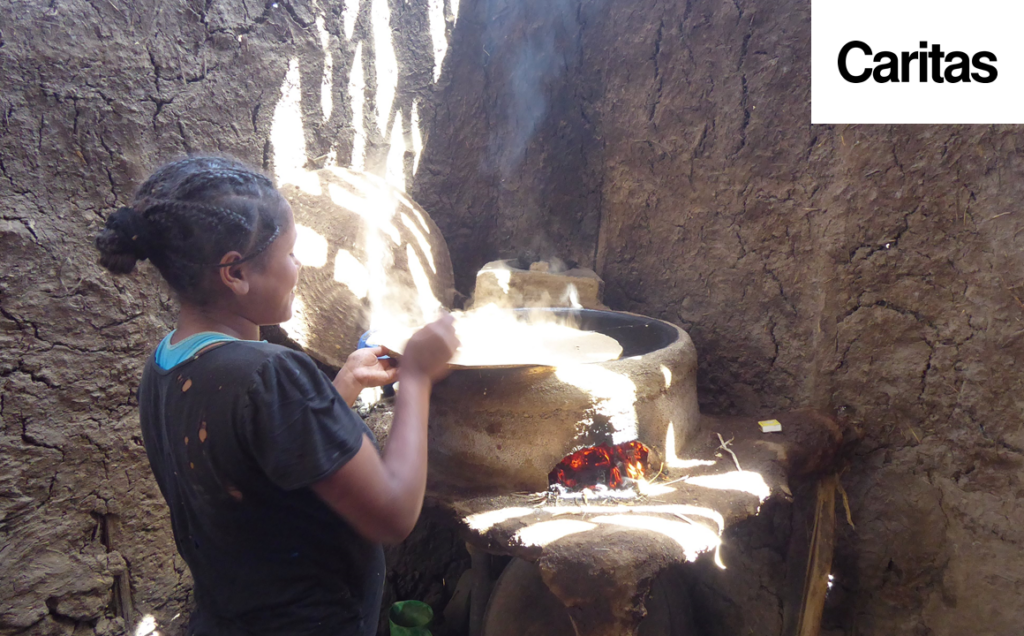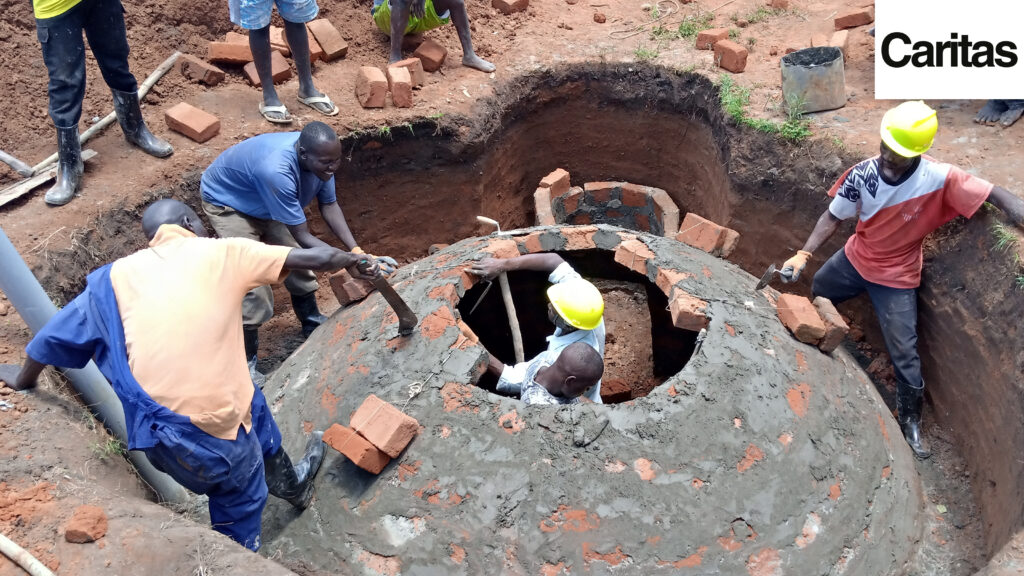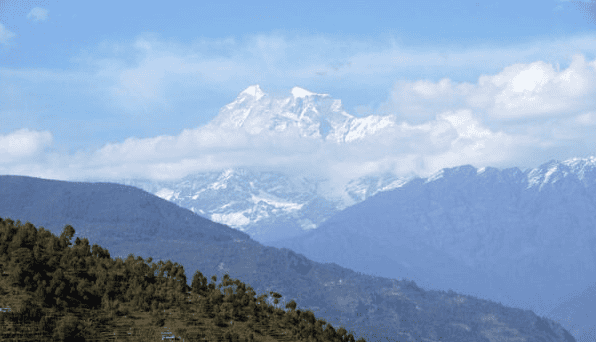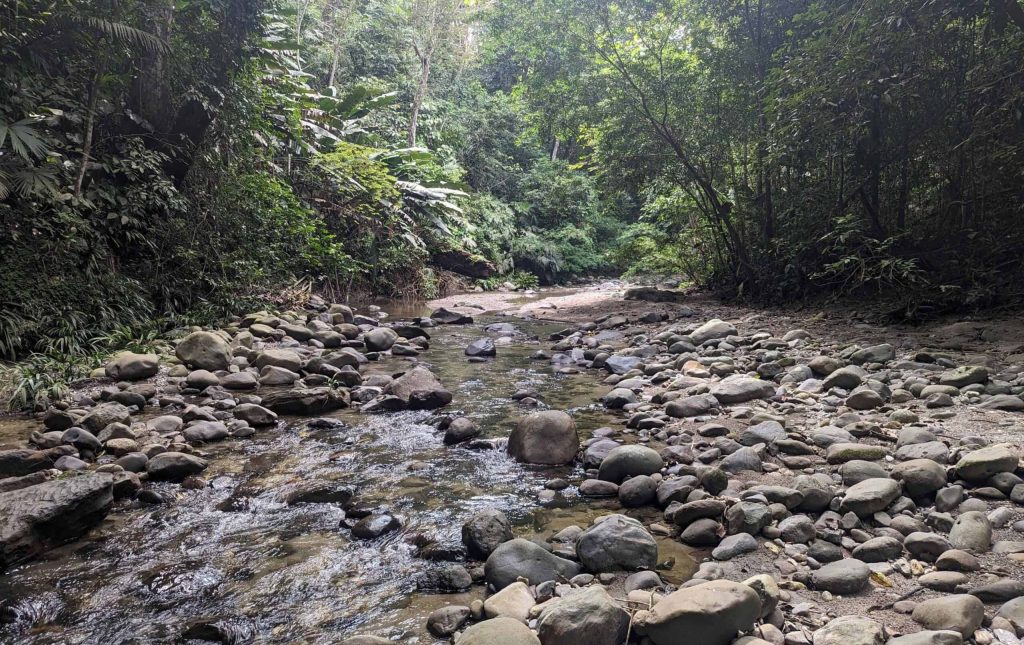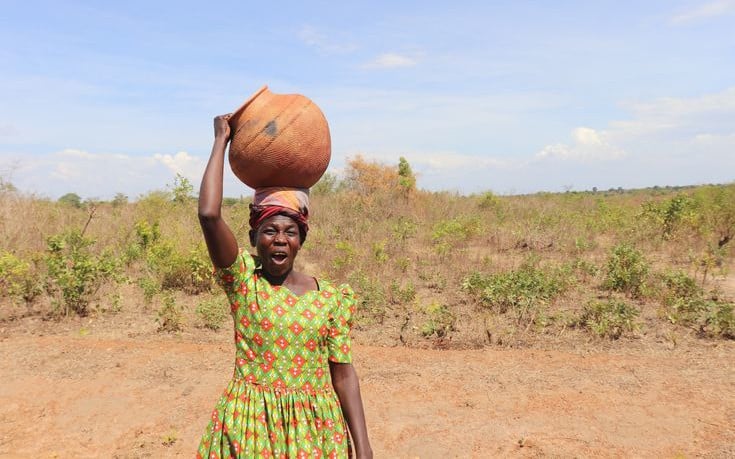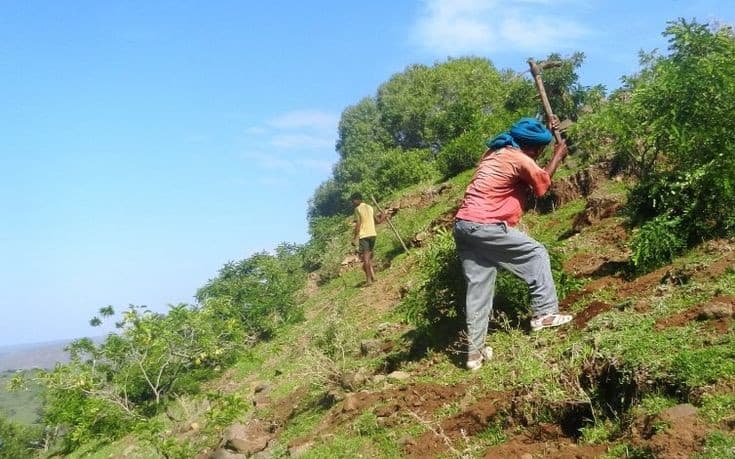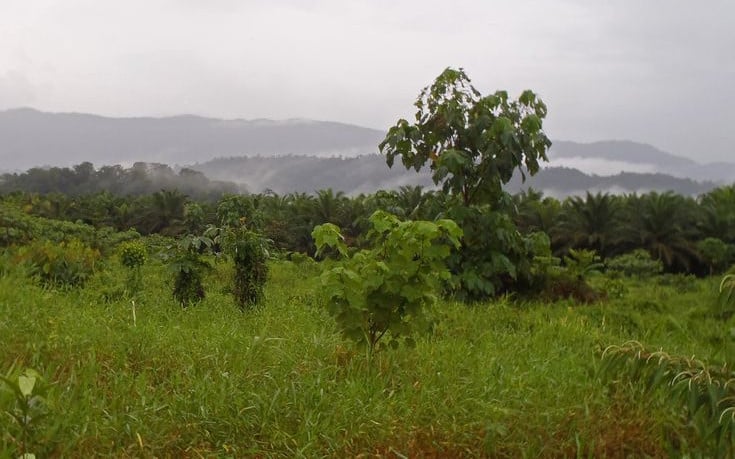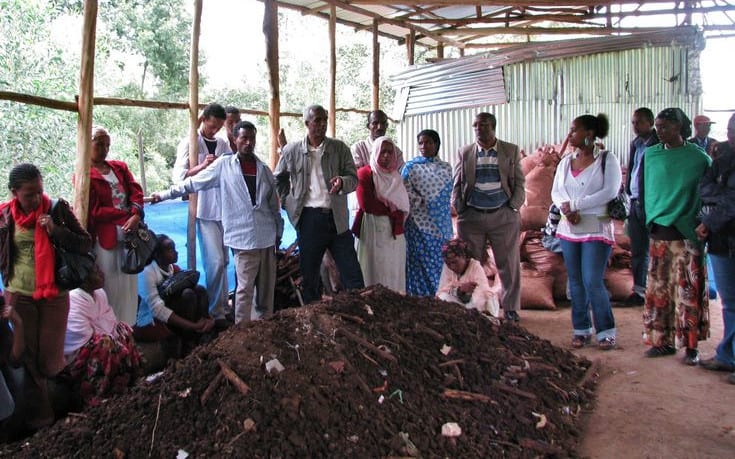Unsere Klimaschutzprojekte im Globalen Süden
Im Folgenden finden Sie einen Überblick über unsere durch Spenden (“Klimaschutzbeiträge”) finanzierten Klimaschutzprojekte im Globalen Süden. Die Projekte im Rahmen unserer “Klimaschutzplattform BOKU x Caritas” können Sie mit einem Klimaschutzbeitrag unterstützen. Alle anderen Projekte sind bereits ausfinanziert – für sie können wir daher keine Spenden mehr entgegennehmen.
PROJEKTE DER KLIMASCHUTZPLATTFORM “BOKU x CARITAS”
Südsudan
- Emission Reduction 14.860 t CO2-Äquivalente in 5,5 Jahren
- Goal Energiesparende Kochöfen und nachhaltige Ziegelproduktion, senken Kosten und schaffen neue Einkommensmöglichkeiten für die Jugend.
- Project Duration Beginn 2023, Begleitung für 5,5 Jahre
Äthiopien
- Emission Reduction > 25.000t CO2-Äquivalente in 5,5 Jahren
- Goal Das Projekt fördert nachhaltige Landnutzung und Einkommensquellen, um ländliche Lebensgrundlagen bis 2030 zu verbessern.
- Project Duration Beginn 2025, Begleitung über 5,5 Jahre
SONSTIGE PROJEKTE (AUSFINANZIERT)
Gulu / Uganda
- Emission Reduction 14.500 t CO2-eq in 6 years
- Goal Construction of 200 bio-gas plants for a total of 800 households and schools, and an increase in food production.
- Project Duration Start 2020, duration of 6 years
Siwalik and Gauri Sankar / Nepal
- Emission Reduction 17.700 t CO2-eq in 30 years
- Goal Reforestation of 80 ha of fallow land and establishment of agroforestry
- Project Duration Start 2016, monitoring for 30 years.
La Dorada / Colombia
- Emission Reduction 12.000 t CO2-Äquivalente jährlich über 12 Jahre
- Goal Preservation and protection of local forests through sustainable forest management and capacity development, with economic and artisanal co-benefits.
- Project Duration Start 2020, support and monitoring for 12 years
Soroti / Uganda
- Emission Reduction 20.000 t CO2-eq in 5 years
- Goal Use of solar water disinfection (SODIS method with WADI) in 2000 households and improvement of the hygienic situation
- Project Duration Start 2019, monitoring for 5 years.
North-Gondar / Ethiopia
- Emission Reduction 5.300 t CO2-eq in 30 years
- Goal Transfer of 30 ha of fallow land to an unevenly-aged stable coppice forest
- Project Duration Start 2012, monitoring for 30 years.
San Miguel / Costa Rica
- Emission Reduction 4.400 t CO2-eq in 30 years
- Goal Transfer of approx. 15 ha fallow land into a secondary rainforest
- Project Duration Start 2016, monitoring for 30 years.
Addis Ababa / Ethiopia
- Emission Reduction 200 t CO2-eq per year
- Goal Collection and composting of about 8.000 tonnes of organic waste annually
- Project Duration Start of 2016, monitoring over 6 years

